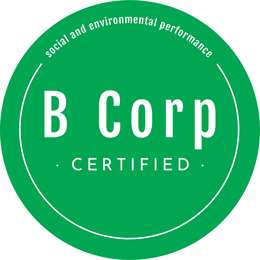
Ask ACE: What can you tell me about B Corp certification?
Q: I’ve decided I don’t want to be in business unless my business is a good corporate citizen. I’m willing to make the necessary sacrifices to the bottom line. What can you tell me about B Corp certification?

ACE Advises: B Corporation certification is a designation that a business is meeting high standards of verified performance, accountability, and transparency on factors from employee benefits and charitable giving to supply chain practices and input materials. Maine companies like Luke’s Lobster, Tom’s of Maine and Coffee By Design have secured B Corp certification. It is considered an important proof of commitment and accountability. But while B Corps are committed and accountable businesses, your business can be both committed and accountable without becoming a B Corp.
Let me place this unapologetic capitalist bug in your ear: businesses that pay attention to environmental impact, social responsibility, and good governance simply do better than others. According to BlackRock founder, Larry Fink, “purposeful companies, with better environmental, social, and governance (ESG) profiles, …outperform(ed) their peers.” Fink terms this a “sustainability premium.”
You need to think carefully about whether certification serves your business. Are you trying to attract a specific type of investor? Would certification help drive sales, more than, say, including compelling examples of your environmental, social and governance commitments in your marketing materials? Or are you making B Corp certification an end in itself?
Operationally, high ESG profile companies manage their resources better, such as water, electricity, gas, and reduce waste. They mitigate risk through regulatory compliance and understand when regulatory change is on the horizon, reducing insurance and litigation risk.
If the market perceives that a company is a good corporate citizen, the company’s market value typically increases by 10% to 65%. Customers will pay a premium for “good” products, leading to increased sales, customer loyalty, and lower customer acquisition costs; these contribute to larger top and bottom lines.
These companies have an easier time getting capital, at lower cost because they are a low financial risk. No wonder BlackRock pays attention.
Deborah Mills-Scofield, an ACE member and principal at Mills-Scofield LLC, helps companies create and implement actionable, adaptable, measurable and profitable innovation-based strategic plans. She is Brown University’s Mentoring Maven, serving students, alumni and start-ups. Deborah can be reached at dms@mills-scofield.com.










0 Comments